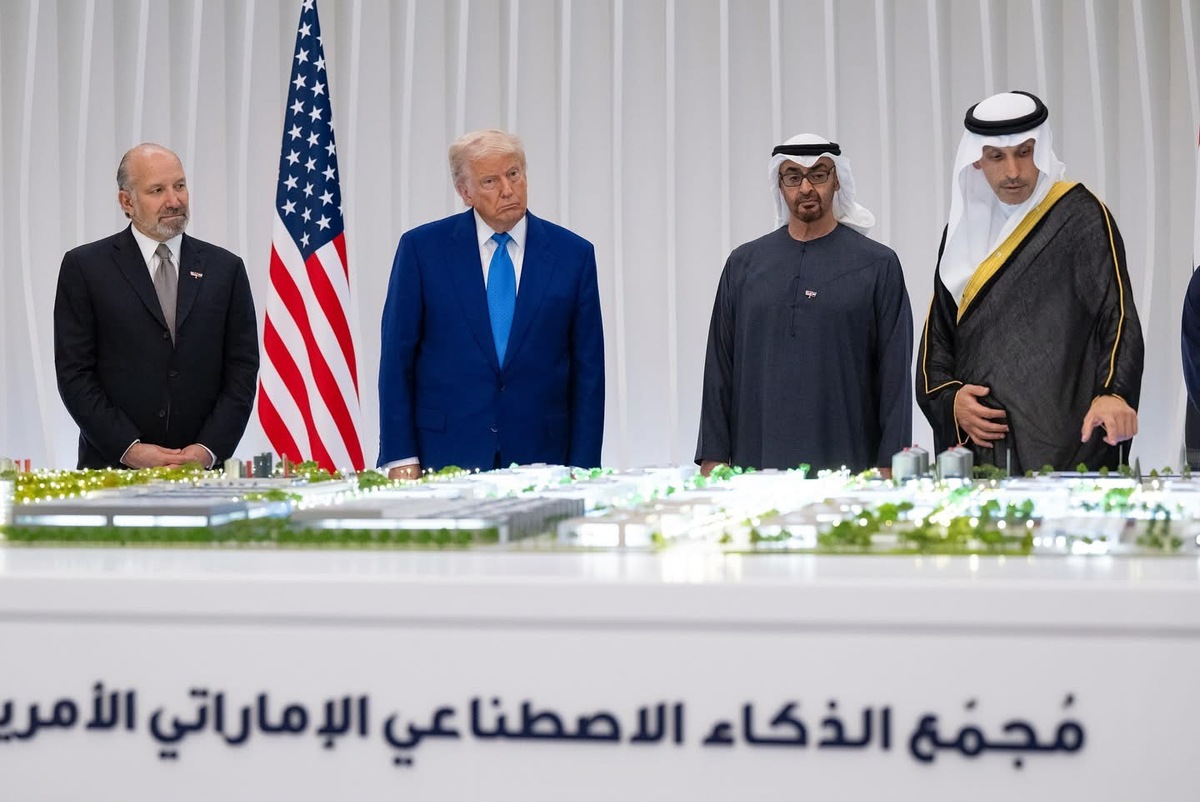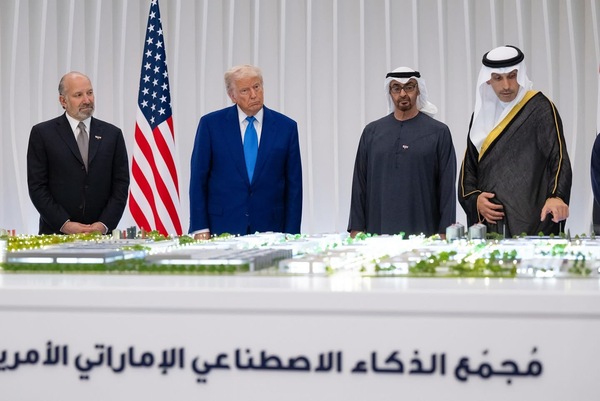Ishaan Tharoor, a distinguished columnist for the Washington Post, noted that by the end of US President Donald Trump's visit to the Middle East, the long-awaited "grand bargain" to bring peace to a troubled region was nowhere in sight. Instead, there were numerous smaller deals.
Trump may be off the hook for his tour of Saudi Arabia, Qatar, and the United Arab Emirates—three oil-rich nations he has held significant sway over for decades, maintaining numerous military bases scattered across the country. In return, Trump spends tens of millions of dollars annually (some say monthly) working with a number of consulting firms in the US capital to exert influence in Washington.
Trump has promoted a series of trade and investment deals concluded with his encouragement. Lucrative agreements were concluded for American weapons, aircraft, and artificial intelligence chips, while Trump, in multiple speeches, extolled the success of these wealthy countries ruled by absolute monarchs.
According to White House data, the three countries have concluded more than $3.4 trillion in contracts and deals with American companies, "which will provide millions of good jobs for Americans."
“On a trip that seemed more about business than geopolitics, Trump still feigned hopes for peace,” Tharoor says. “He extended a hand to Iran, hinting at possible future talks on its nuclear program. He announced a truce with the Houthi rebels in Yemen after authorizing a $1 billion bombing campaign that did not affect the Houthis’ ability to target Israel or shipping in the Red Sea. To the surprise of even some US officials, he announced a halt to sanctions on Syria, a crucial step to bolster the country’s nascent transitional regime. He also denounced the legacy of US intervention in the region.”
According to experts, the signals he sent caused panic in Israel. Before Trump's visit, Israeli media and officials were already pointing to how Trump had sidestepped Israeli Prime Minister Benjamin Netanyahu, a far-right leader close to the US president who had received numerous political gifts from the White House during Trump's first term, from recognizing occupied Jerusalem as Israel's capital and granting him the occupied Syrian Golan Heights, to closing the Palestine Liberation Organization office in Washington, shuttering the US consulate in East Jerusalem, and cutting off aid to the United Nations Relief and Works Agency for Palestine Refugees (UNRWA).
But in his second term, according to Tharoor, Trump's vision of the Middle East is no longer linked to Netanyahu's. The Israeli leader—whose arrest warrant was issued on November 21, 2024, by the International Criminal Court—was not pleased with Trump's overtures to Tehran, his unilateral truce with the Houthis, and his opening to Syria, which Israel has relentlessly bombed in recent months. Trump cited the Abraham Accords—the agreements establishing formal relations between Israel and a group of Arab states—but the accords seemed less central to his efforts this week. For Israel, the prospect of normalization seemed to have been sidelined.
Meanwhile, Israeli forces have been pounding the besieged Gaza Strip. Shelling of alleged Hamas targets has killed hundreds of civilians in recent days. On Thursday alone, local groups reported that Israeli attacks killed more than 100 people. A hospital director in northern Gaza told the Washington Post of one incident in which they received the bodies of 20 children killed on Wednesday. The humanitarian situation remains dire, with one in five people in the Strip facing starvation amid an ongoing Israeli blockade that has prohibited the entry of food, water, and medicine since March 2, in full view of the world.
Netanyahu declared on Tuesday (May 25), the day Trump began his visit to Saudi Arabia, that there was "no way" for Israel to stop its massacre in Gaza, vowing to "finish the job" and completely eliminate Hamas. This message undermined attempts in Doha, Qatar, to resume peace talks between the parties. Netanyahu again came under criticism from the families of hostages held by Hamas, who fear that the prime minister is prioritizing his political interests and his alliance with the far-right Israelis over the suffering of Israelis held in Gaza. On Monday, Trump praised the release of Israeli-American Idan Alexander—the last American citizen held by Hamas—and noted on social media that the decision to return him to Israel was "a step taken in good faith by Hamas." The White House message implied impatience with Netanyahu, whom many see as an obstacle to attempts to reach a permanent ceasefire. Some of Netanyahu's far-right allies have made clear their desire to displace as many Palestinian citizens as possible from the devastated and besieged Strip and to reoccupy it indefinitely.
It's worth noting that President Trump has not abandoned his bizarre plan to take control of Gaza and redevelop it himself. "Gaza has been a land of death and destruction for many years," Trump told reporters. "I have visions for Gaza that I think are very good—make it a freedom zone. Let the United States step in and make it just that—a freedom zone."
Whatever the outcome, the rift between Trump and Netanyahu is fading. “For Netanyahu, who has been accustomed to his settler allies directing his policy in his first term, the new version of Trump’s position must come as a shock,” Ilan Goldenberg, senior vice president and chief policy officer at J Street, a liberal pro-Israel organization in Washington, wrote in an email note. “For Trump, his friends in the Gulf are showering him with deals and benefits—when he looks at Israel under Benjamin Netanyahu and [far-right leader] Itamar Ben-Gvir, he sees nothing but headaches.” These include “endless war” in Gaza, an Israeli political leadership “determined to sabotage talks with Iran,” and an Israel that appears unwilling to make the political concessions necessary before it can integrate more deeply into the region.








Share your opinion
Trump made a fortune from his visit to the Gulf, marginalized Israel, and failed to help Gaza.